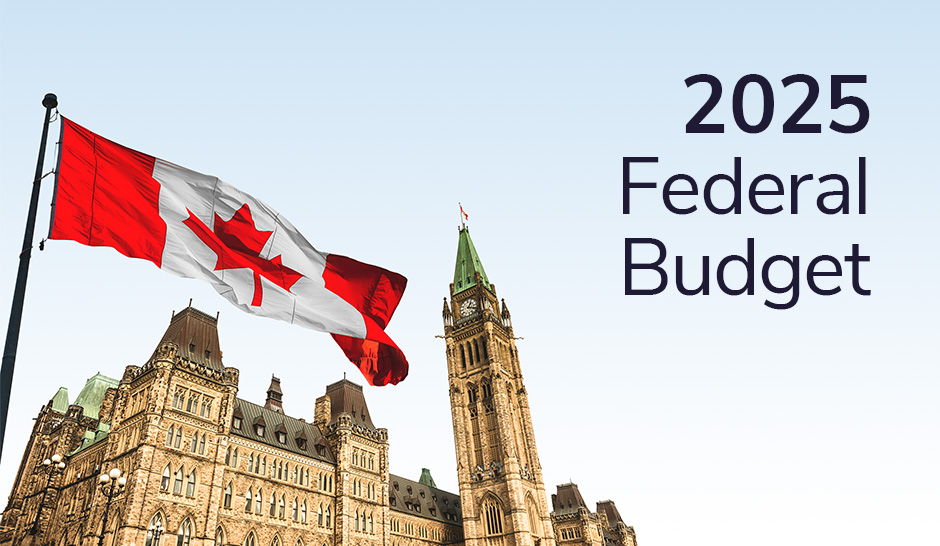The Canadian government presented the 2025 federal budget on November 4, which contained several proposals of interest to Canadians. Here are the highlights:
1. Measures that tighten rules around trusts
Budget 2025 reaffirmed the government’s plan to implement changes to the bare trust reporting requirements but postponed the date they’ll apply (a bare trust is where the trustee holds assets on behalf of a beneficiary but has no powers other than acting on the beneficiary’s instructions). The enhanced reporting requirements will apply for taxation years ending on or after December 31, 2026.
Current tax law requires that every 21 years from a personal trust’s creation (and each 21-year anniversary thereafter), the trust is deemed to have sold all its capital property at its fair market value, triggering tax on gains.
To stop taxpayers from avoiding this deemed disposition, the current rules prevent direct tax-deferred transfers of property from one trust to another, simply to reset the 21-year clock. The 2025 federal budget expands this to include indirect transfers of property.
How could this affect you? As of November 4, you’ll no longer be able to have indirect transfers of property to other trusts to avoid the 21-year rule.
2. Elimination of select taxes: good news for some
The Underused Housing Tax (UHT) is a federal 1% tax on the value of underused/vacant residential properties. The 2025 federal budget proposed eliminating the UHT, starting with the 2025 calendar year. All UHT rules remain in effect for the 2022–2024 calendar years.
Furthermore, budget 2025 eliminated the luxury tax on specific boats and aircraft, in effect since late 2022 (this was a tax on select automobiles and planes valued over $100,000, and boats valued over $250,000), effective as of November 5, 2025 (though the tax on automobiles remains).
How could this affect you? If you own several properties, you’ll no longer have to declare them for UHT purposes. Also, if you intend to buy luxury planes or boats after November 4, you’ll pay no luxury tax.
3. Tax relief for personal support workers caring for Canada’s seniors
Budget 2025 introduced a temporary Personal Support Workers Tax Credit applicable for the taxation years 2026 to 2030. It will provide personal support workers with a refundable tax credit of 5% of earnings (worth up to $1,100 per year).
Workers must provide one-on-one care in support of another person’s health, well-being, safety and autonomy.
How could this affect you? The government is supporting the people who look after our loved ones, helping to ensure that they get the care they need.
4. Double dipping eliminated on the Home Accessibility Tax Credit
Certain home renovation expenses aimed at improving accessibility for eligible persons with mobility issues may currently qualify for both the Home Accessibility Tax Credit and the Medical Expense Tax Credit. Budget 2025 proposes to prohibit the same expense from being claimed for both tax credits, starting 2026.
How could this affect you? You’ll only be able to claim accessibility renovation expenses for either the Home Accessibility Tax Credit or the Medical Expense Tax Credit.
